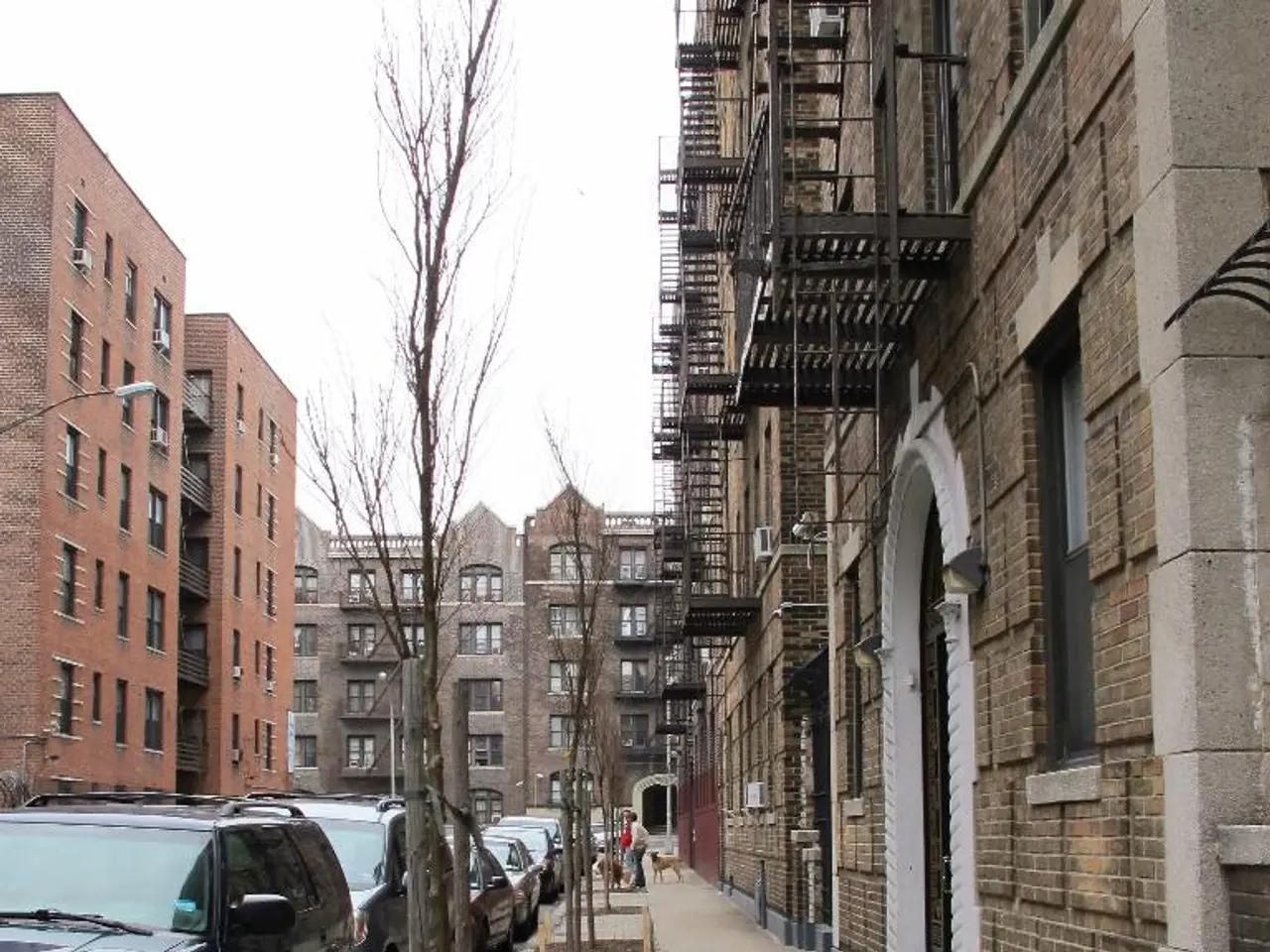Renting in Erfurt Amidst the Coronavirus Pandemic: A Look at Ancillary Costs and Rent Arrears
Dissecting Ancillary Costs (Nebenkosten)
Majority of Thuringians aren't burdened with rental debt concerns - Unpaid rental debts overlooked by most Thuringians
Ancillary costs, often referred to as Nebenkosten, typically encompass expenses like heating, water, waste disposal, building maintenance, property tax, and shared utility services. These costs are added to the base rent and can vary depending on consumption, market prices, and regulations.
The Pandemic's Effect on Ancillary Costs in Erfurt, Thuringia
- Energy Expenses (Heating, Water, Electricity)
- Reduced demand during lockdown periods initially lessened energy costs in 2020.
- However, from 2021 onwards, increasing global tensions, supply chain disruptions, and rising inflation led to a sharp escalation in energy prices.
- With heating and water comprising significant portions of Nebenkosten, tenants in Erfurt likely experienced a surge in ancillary costs from late 2021.
- Maintenance and Property Services
- Temporary delays in maintenance and communal services became common due to lockdowns, potentially resulting in minor cost reductions in 2020.
- Postponed maintenance from this period could have contributed to increased costs in subsequent years.
- Waste Disposal and Cleaning
- Waste disposal fees remained relatively unchanged, but waste volumes might have fluctuated slightly due to lockdowns.
- Cleaning services for shared areas potentially increased due to COVID-19 safety measures, adding to costs.
- Regulatory Factors
- Tenant protection measures focused on rent adjustments, not ancillary costs during the pandemic period.
- Energy price surcharges persisted despite temporary caps in some regions.
Comparing Pre-Pandemic Times (Before 2020)
- Earlier than 2020:
- Ancillary costs in Erfurt and Thuringia slowly increased along with inflation and energy price trends.
- Energy prices demonstrated no drastic variations.
From 2020-2021:
- Some initial stabilization or minor decreases in certain cost areas due to lockdown effects.
- Overall, ancillary costs may have remained steady or slightly lowered in 2020.
Post 2021:
- Clear and substantial increases in ancillary costs due to surging energy prices.
- Inflation and supply chain issues amplified maintenance and service fees.
- Elevated heating and electricity costs translate directly into increased Nebenkosten for tenants.
Synopsis
| Timeframe | Key Trends in Ancillary Costs ||-------------------------|---------------------------------------------------------|| Before 2020 | Gradual, steady increases; stable energy prices || 2020 (Pandemic start) | Slight stagnation or minor reduction due to lockdowns || 2021-2022 | Rising ancillary costs, driven by soaring energy prices || 2023 onwards | Continued elevated ancillary costs with inflation impact|
Further Notes
- Tenants in Erfurt may find these fluctuations reflected in their Nebenkosten statements, especially in heating bills.
- Landlords often provide annual cost recalculations, which became more prominent as energy prices escalated.
- For the most precise and current data, consult local housing associations, Erfurt municipal reports, or energy providers for detailed insights on Nebenkosten trends.
I can help you locate city-specific reports or provide guidance on understanding your Nebenkostenabrechnung (annual statement) during this period if desired. Would that be helpful?
- In light of the sharp increase in energy prices since 2021 due to global tensions, supply chain disruptions, and rising inflation, it would be worthwhile for the community to examine the impact on vocational training programs in the field of energy management or renewable energy.
- When analyzing general-news stories about the economic effects of the pandemic in Erfurt, specific attention should be given to the rise in ancillary costs, such as those related to business financing, as these factors can affect the overall viability of vocational training centers within the community.





